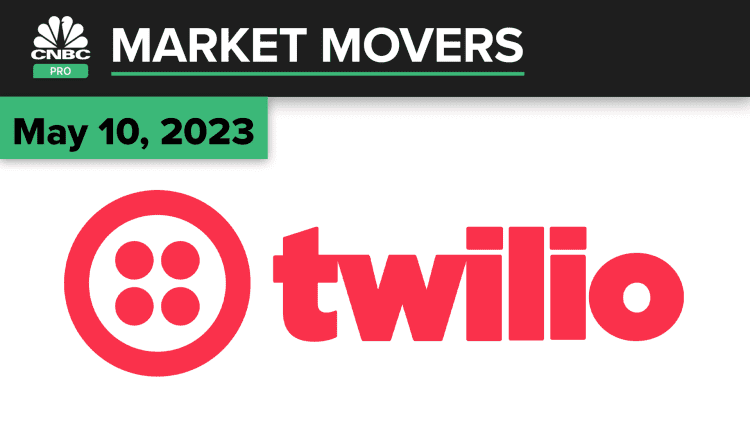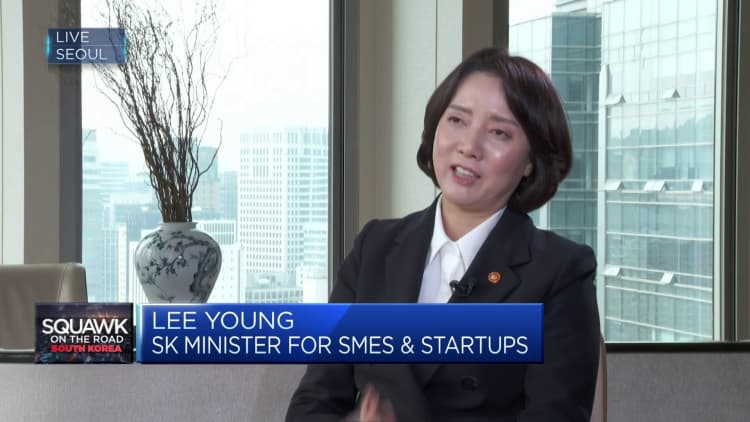
The Nasdaq Composite closed higher Wednesday as investors fled to tech stocks after a tamer-than-expected inflation report.
The tech-heavy index added 1.04%, closing at 12,306.44. The S&P 500 added 0.45% to close at 4,137.64. Finally, the Dow Jones Industrial Average inched downward by 0.09%, or 30.48 points, to end the day at 33,531.33.
April consumer prices climbed 4.9% from a year ago, which was less than the 5% gain anticipated by economists polled by Dow Jones. Month-over-month inflation matched expectations with a 0.4% increase in April.
Treasury yields tumbled following the report, further supporting a stock market which has been worried about higher rates snuffing out economic growth. The yield on the 2-year Treasury fell about 11 basis points to 3.91%, while the rate on the 10-year declined 8 basis points to 3.44%.
"Optimism for the disinflation process to remain in place is high as this report showed shelter prices remain elevated, which just means the lag we are seeing with rent prices should start [to] meaningfully show over the few months," said Ed Moya, senior market analyst at Oanda. "Inflation should continue to decline over the next few months, but falling back to 2% will be a lot harder given the strength in the labor market."
Overall market gains were contained as cyclical stocks, which are most closely linked to the economy, traded lower. Shares like Nike and Caterpillar ended the session lower as some investors reasoned that inflation was slowing because a recession is imminent or has already arrived.
Airbnb and Twilio fell 10.9% and 12.6%, respectively, a day after reporting weak forecasts. Electric vehicle maker Rivian closed 1.8% higher, a day after the company posted a narrower-than-expected loss. Earnings season continues Wednesday with results from Disney and Robinhood.
But despite the latest sign of inflation increasing at a lower monthly clip in April, Wall Street is seemingly cautious on sparking a full-blown rally.
"With each passing month without slowing in core inflation, the chances of getting down to the FOMC's forecast for the year are receding," said Stephen Stanley, chief U.S. economist at Santander US Capital Markets. "So, to me, this is not a dovish result."
Traders also monitored the latest updates on the U.S. debt ceiling as worries mount that an agreement may not be reached before June 1, which is the earliest date the Treasury Department says the U.S. could default. President Joe Biden held a key meeting with congressional leaders after the bell Tuesday, but comments from leadership on both sides of the aisle suggested that little progress was made. Biden and Congressional leaders will meet again on Friday.
Lea la cobertura del mercado de hoy en español aquí.
Correction: Stephen Stanley is chief U.S. economist at Santander US Capital Markets. An earlier version of this story misstated his affiliation.




